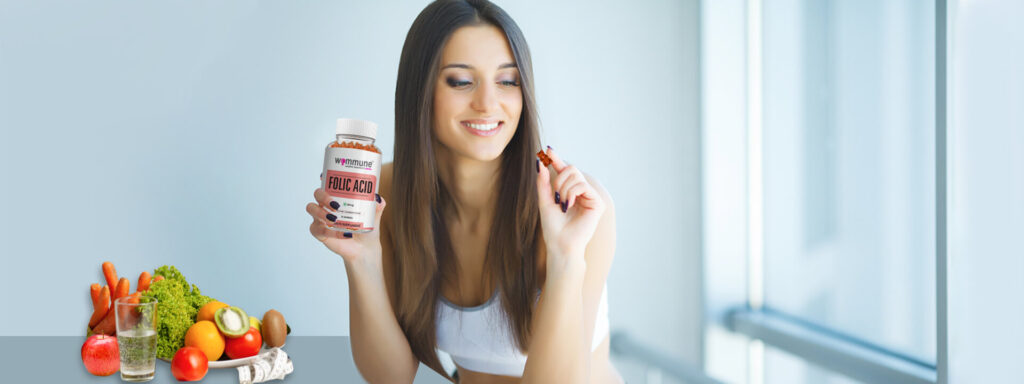

Folic Acid: A Superhero for Women's Health!
Are you experiencing persistent tiredness, pale skin and constant acne?
You are not alone!
Folate deficiency has been reported to have a prevalence ranging from 1% to 63% in different regions of India. Folate, a type of B vitamin that is soluble in water, occurs naturally in specific foods and can be acquired as a nutritional supplement. A folate deficiency indicates that the amount of folic acid, a form of vitamin B, in your bloodstream is below the normal range.
Why is folic acid essential for women?
Folate plays a crucial role in multiple body functions. One of the ways it assists the body is by aiding in the production of new, healthy red blood cells. It is also essential in preserving the skin’s natural radiance. It has the potential to decrease the occurrence of acne and pimples. The skin care benefits of folic acid also include strengthening the skin barrier function, which could enhance moisture retention, leading to better hydration and relief from skin dryness.
Folic acid for pregnant women:
Adequate folate intake is especially vital during pregnancy since folic acid plays a critical role in the early development of the foetus.
The RDA (Recommended Dietary Allowance) for folate is recommended in micrograms (mcg) of DFE (dietary folate equivalents). Individuals who are 19 years of age or older, regardless of gender, should strive for 400 mcg DFE. An increased use of folic acid supplements is observed over the years to maintain recommended levels.
Folate deficiency may develop if:
1. Diet: Low intake of green leafy vegetables, fresh fruits, meats, cereals
2. Overcooked fruits and vegetables: Consuming fruits and vegetables that are overcooked can lead to the destruction of folate
3. High alcohol consumption: Long-term alcohol abuse causes malnutrition, resulting in a deficiency of various nutrients such as vitamins and trace elements. While deficiencies in all vitamins are common, folic acid (vitamin B9) is the most crucial due to its clinical significance.
4. Certain medicines (like sulfasalazine, phenytoin or trimethoprim-sulfamethoxazole)
Here is your ultimate guide to maintain efficient levels of folic acid!
1. Consumption of Folate rich foods:
A diverse range of foods naturally contain folate, such as vegetables (particularly dark green leafy ones), fruits and their juices, nuts, legumes, seafood, eggs, dairy, meat, poultry, and grains. Foods with the highest levels of folate include spinach, liver, asparagus, and Brussels sprouts.
2. Grab your Gummies!
There is evidence to suggest that certain supplements can improve Folate levels and overall health in various ways.
Wommune provides just the right supplement for you! The folic acid gummies provide essential support for pregnant women. It acts as an important nutrition supplement before, during, and after pregnancy. It is also formulated carefully to improve haemoglobin levels.
Pro tip: Take one gummy per day for best results!
